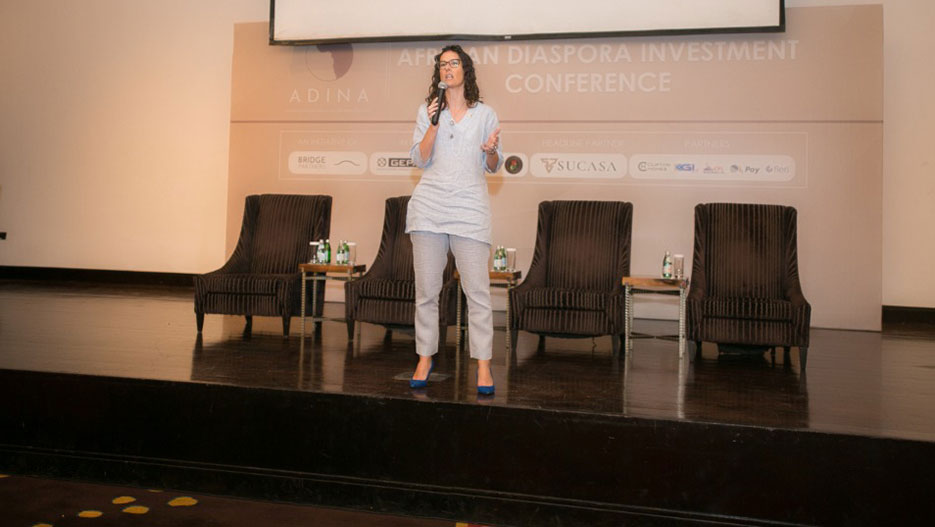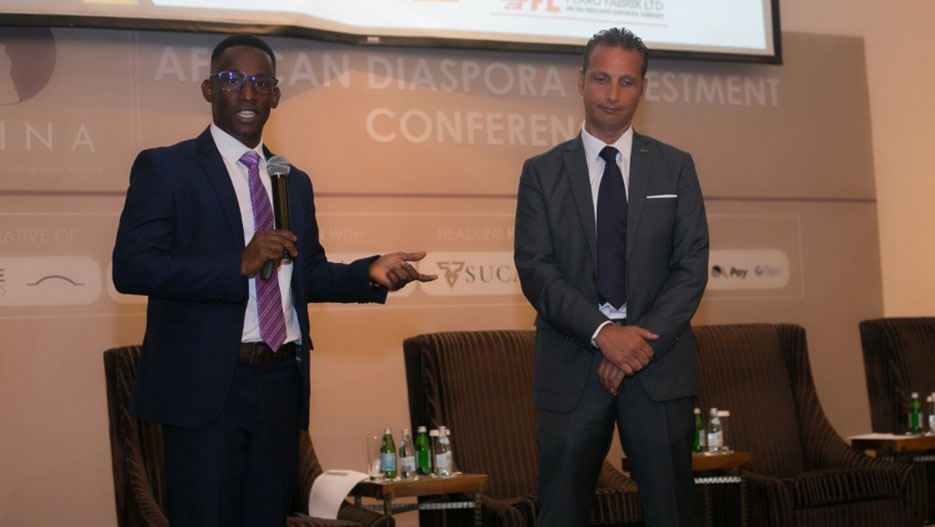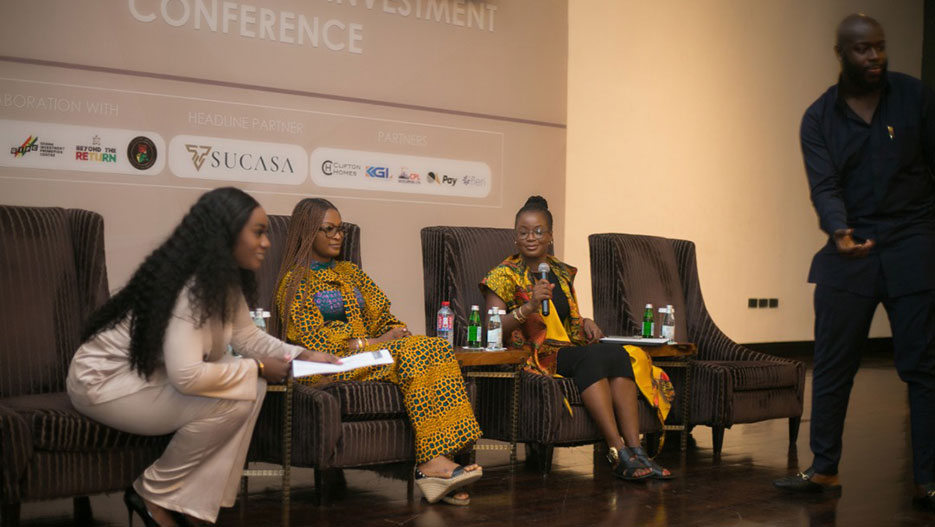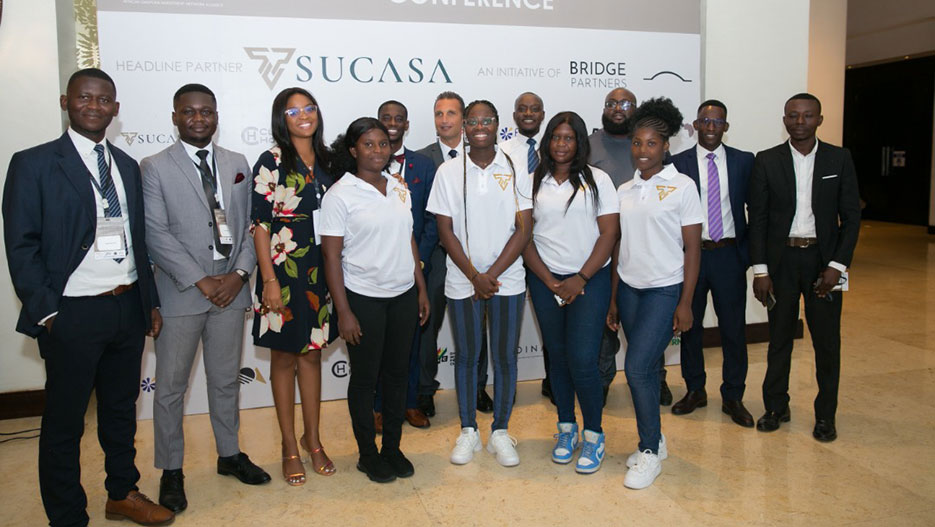The African Diaspora Investment Network Alliance (ADINA) Conference was another show of opportunity creation, information dissemination, corporate networking, and hopes of widening investment opportunities for the diaspora community in particular towards the domestic economic expansion and development. Many of the members of the diasporan community hoping to transition to the home country of Ghana have been offered the needed platform to explore and gain relevant insights into transitioning and effective resettlement schemes back home through the ADINA Conference over the last 8 years, with Conference venues hovering around various communities of the world.
The ADINA Conference is organized in close partnership with the Diaspora Affairs Office of The President of the Republic of Ghana, The Ghana Investment Promotion Center (GIPC), The President’s Official Beyond The Return institution and the private sector. The data shows that the diaspora alone remits home about $65 billion annually. Given that to be about 10% of their annual income, their total annual income could be estimated to be about $650 billion – a figure more than the highest single GDP of any country in Africa, considering that Nigeria tops the record with only $514 billion. The conclusion is that the cashflow from the diaspora community invested in Africa could help turn African economic fortunes around for the best.
The 2022 version of the Conference, held on 30th December at the Kempinski hotel in Accra, was in partnership with SuCasa Properties, and the latter, serving as the Headline Sponsor – once again, attracted many noble citizens and dignitaries from the diplomatic corps, Ministries and governmental political offices in the country.
In her opening remarks, The British High Commissioner in Ghana in the person of Ms. Harriet Thompson, elucidated on the British government’s preparedness to facilitate and set the framework for partnership and investment opportunity creation in Ghana through proper diplomatic relations and strategic business and corporate networking. She lauded the event as more people in the diaspora are looking back to investing in the domestic economy, and to expanding the economic development agenda and enhance the economic wellbeing of the masses as a consequence.

Other dignitaries present were the Hon. Dr. Nadia Adongo Musah, Deputy Director of Diaspora Affairs, Office of the President; Hon. Gyankroma Akuffo-Addo, CEO of Creative Arts Agency Ghana; a representative of Dr. Affua Asabea Asare, CEO of the Ghana Export Promotion Authority who couldn’t attend in-person because of the demand of other government official duties; Mr. Alex Dadey, Chairman of the Ghana Investment Promotion Center (GIPC); Mr. Yaw Afriyie, Deputy CEO- GIPC; the legendary Asamoah Gyan, former Ghana Black Stars Captain and many more – all as guest speakers.
As the Headline Sponsor of the event, SuCasa Properties was ably represented by Senior Management and other staff of the company to promote and create awareness about the company’s brand and products.

As a highly regarded real estate company with a dedicated team of professionals, SuCasa Properties is addressing Ghana’s core housing opportunities and challenges. Well-equipped in all aspects of the real estate industry, they operate with the single aim of achieving the highest possible customer service standards. The company works in several different verticals in the industry including residential and commercial construction, renovations or facelifts, property sale and rental, and property management.
The SuCasa brand echoes a sound of hope and re-assurance. The continuous increase in demand for the country’s housing infrastructural asset, presents a real challenge to the government. The various interventions from the government and private real estate managers and other home providers have not sufficiently, addressed the menace. The government’s call for Public Private Partnership engagement is commendable, but what is required at present is the state-of-the-art technology and economic model capable of furnishing the housing infrastructural deficit gap with the needed units of affordable homes equally accessible to every nook and cranny.
The housing infrastructural deficit gap of 1.8million units implies that about 85,000 units of annual housing demand is impending – putting the market scissors of demand and supply at an unequilibrium scale, where demand outweighs supply. In fact, the consequences are dire. To adequately bridge this gap and factor the ordinary Ghanaian’s purchasing abilities to own a home into the solution trajectory, requires pragmatic innovations. The private sector, usually driven by the profit maximization motive has not successfully addressed the housing demand index of the low to middle income earners of the economy. This is a worrying trend, if the resolve to providing affordable housing for all the citizenry is to be gauged on a realistic scale.

Many factors including the global economic crisis and its direct ramifications on rising cost of living and other debilitating consequences such as high cost of building materials on one hand; land management issues, challenges with easy and convenient access to domestic credit facilities, fraudulent intermediate brokers (agents), rapid population growth and urbanization, and increasing middle means on the other – all account for the opposition to society’s inability to completely nip the problem in the bud.
Here, when they talk about innovation, they are addressing strategic innovation, technological and scientific deficits in the social intervention schemes already on the roll out, and most importantly, engaging with the right economic model to effectively arrest the challenge. Incorporating all these into the solution benchmark has evoked the thinking, passion, and the evolution of the SuCasa Affordable Housing Scheme on the market with such an unbelievable practical and pragmatic initiative, both on the side of planning, technological invention and economic affordability of the solution to the country’s current housing infrastructural development deficit.

In his PowerPoint presentation at the Conference, Mr. Isaac Preko Boateng, the Chief of Staff to the CEO of SuCasa Properties – Mr. Michael Kwabena Owusu O’Grantson-Agyapong – outlined the various schemes that the company has conveniently initiated to making sure that the citizenry’s avowed aim of homeownership through the purchasing of SuCasa’s building properties becomes a reality. In so doing, he spoke about the Off-plan building policy that the company engages which offers flexibility for property development in the wake of trust – giving the very circumstances of the fettered mortgage access in the country. He delivered on the various payment plan policies including a 1-year payment plan and 2-year payment plan policies, customized payment policy for customers to conveniently negotiate their own terms of payment in harmony with the company’s corporate objectives, outright payment options with 3% discount benefits and many more.
Mr. Boateng also highlighted on the project management plan and the long-term scheme of expanding its project developments to the various hinterland communities of the country beyond the Greater Accra Region, where the company is currently rolling out its projects at East Legon Hills and Ayi Mensah.
Many participants at the Conference who came from the diaspora community were enthused about the investment opportunity in the real estate industry as brilliantly espoused by Mr. Boateng in conjunction with Mr. Abdul Rahman Shehab who joined the stage to help answer participants’ questions about the prospect of the real estate investment that the SuCasa brand offers.
It was obvious at the event that the completive price of the SuCasa housing units made investment into the SuCasa housing units very expedient against the backdrop of the ramifications of the micro economic indicators and depreciation of the cedi. For instance, an investor, could double the Return on Investment (ROI) on the company’s 3-bedrom or 4-bedroom unit price in less than a year as compared to any other investment opportunity provided in the ecosystem.
The company indicated, that presently, its 3-bedroom housing unit with an Outhouse at East Legon Hills and Ayi Mensah is going for the cedi equivalent of $70,000 whilst, its 4-bedroom unit with an Outhouse at the same locations sells for the cedi equivalent of $105,000 based on the prevalent exchange rate. Others of the company’s products out-doored were its 3-bedroom Extended unit with an Outhouse for the cedi equivalent of $85,000, 4-bedroom Extended unit with an Outhouse for the cedi equivalent of $175,000 and finally its 4-bedroom Premium selling at the cedi equivalent of $225,000. These other Extended and Premium products, understandably come with its additional luxury of space, touch and value.
The Conference featured other sessions on agribusiness, investment in beauty and fashion, hospitality, sports etc.
Mr. Terry Afram, the CEO of Bridge Consult, and Convener of the ADINA Conference was full of praise and appreciation for the sterling enthusiasm with which the vision of the ADINA Conference has been embraced over the years, and in particular for the 2022 version. He was very optimistic that the participants, and particularly members of the diaspora community, would maximize the opportunity availed to realize their investment goals through a seamless integration into the development agenda of the country.
Source: Daniel Kofi Awuku-Asare (PRO, SUCASA PROPERTIES GH)







